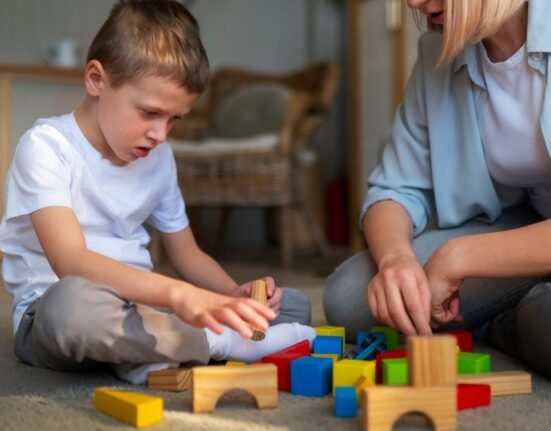A couple rejoices after hearing the news of pregnancy and is always on the edge to do everything correctly. But it so happens sometimes that due to some unforeseen circumstances, they might experience a miscarriage. Miscarriage is the loss of pregnancy before the 20th week. It is an extremely distressing experience for couples and very common too. It may manifest in many different forms, ranging from mild cramps and bleeding during the early stages of pregnancy loss to more severe physical symptoms during the later stages of miscarriage. Miscarriages can have a variety of causes, such as genetic disorders, hormone imbalances, illnesses affecting the mother’s health, and lifestyle choices. Though common in occurrence it has a profound impact on the mental health of the couple.
Miscarriage And Mental Health
After a miscarriage, women and the family may feel various negative emotions like grief, anger, guilt, bereavement, and intense feelings of sadness. The loss of hopes, dreams, and imagined futures with the unborn child is overwhelming and leads to a profound sense of emptiness and despair. According to studies, between 30 and 50 percent of women feel anxiety, and 10 to 15 percent experience depression following a miscarriage. These symptoms usually linger for up to four months. The devastating nature of losing a pregnancy is shown by another study conducted in 2016 that discovered that four out of ten women had PTSD symptoms three months after either an ectopic pregnancy or miscarriage.
The study’s subjects reported experiencing flashbacks, nightmares, and feelings connected to the loss being relived. Some women added that they tried to stay away from circumstances—such as friends or relatives who were expecting—that would bring up memories of their loss. in these circumstances, the family, friends, and health professionals play an important role in supporting the couple, especially the woman after a miscarriage. What they do and what they don’t, can have a very big impact on the emotional well-being of the couple.
According to clinical psychologist Pooja Gupta, miscarriage can cause women anxiety, depression, and intense grief over loss of their child. Many women also struggle with feelings of guilt, and they unfairly blame themselves. In these tough times, support from the family is extremely crucial. Families understanding their pain and providing them support can help women cope and recover emotionally. They need validation, empathy, and support to manage their emotions and move forward. Encouraging activities like going out, traveling, and adjustments to daily routines can help in distraction and facilitate the healing process.
Also Read: Excessive Stress During Pregnancy Can Cause Miscarriage
Now let us see how we can support someone going through this anguishing scenario
1) Acknowledge Their Loss:
Most of the time, when someone suffers a loss, people feel a loss for words. Or more specifically hesitate to say anything fearing they might say anything wrong, and further upset them. But one of the most supportive things you can do is acknowledge their loss by simply saying something like, ‘I am sorry about your loss’. Miscarriage is different from other losses in the family in the sense that they have not seen, or do not have memories with the baby. They don’t even have a body to bury. Also, the stigma surrounding miscarriage or any other opinion saying you can have another baby just doesn’t validate the loss they have experienced. Hence, acknowledging their loss, makes them feel their emotions are valid.

2) Listen To Them:
Someone going through a grieving period after a miscarriage might want to talk again and again about the scenario. Listening to them and letting them grieve is a basic support you can give them. We say that when we feel sad, we should talk it out, but talking it out needs a good listener.
They need someone who listens to them without any judgments, with love and care, and an empathetic lens. Ask them how they are and if they need to talk. They might be resistant sometimes at first and might not want to talk, but they will appreciate you asking.
3) Avoid Giving Advice And Cliched Comments:
Providing support does not necessarily include giving advice. Giving unsolicited advice on how things need to be done might aggravate the stress of the couple. Also, telling them how they could have done things differently to avoid the miscarriage will indirectly lead them to blame themselves for their miscarriage, while already feeling guilty about the loss. Also, apart from the pieces of advice, giving out cliched comments like, ‘ at least you have one baby already’ or ‘ this baby was not in your fate’ or ‘You can always try for another baby’ etc.
Also Read: Miscarriage: Makes or Breaks a relationship
4) Take Care Of Physical Health:
With emotions taking a toll on the person who is grieving, they might not take care of their body. They might not want to eat anything or even take the medicines required for recovery. You must take responsibility for that and make sure they have their food and medications on time. Also, grief can have physical symptoms and emotional which may manifest in the form of nightmares, panic attacks, disturbed sleep patterns, restlessness etc. Hence, assure them to reach out to you whenever they experience such things.
5) Give Practical Help:
Ask them if you can do something to help them. They might deny it, but take the lead and help them in their daily activities. Be there with them. Presence even if silent can offer strength and reliability to the person. Do regular check-ins with them and offer them something they like, bringing them coffee or doing simple activities like household chores together to make them feel supported and not isolated.
6) Giving Meaningful Gifts:
It might feel wrong to gift something at this time, but some meaningful gifts that acknowledge their feelings can be just the right thing to do. A heartfelt card expressing your sorrow or even a memento that makes them remember the baby might just give them the required validation of their loss.

7) Validate Their Process:
Every individual grieves differently. And there is no period to how long one can grieve someone. Since everyone deals with grief from pregnancy loss in a different way, it can be comforting to know that there is no one “right” way to deal with it or a set period by which you should “get over it.
In situations when your friend believes that they are grieving “wrong”—that is, too quickly, too slowly, too much, or not enough—you should reassure them and validate their process by saying that their experience is unique and that there is no right or wrong way to deal with loss.
According to Assistant Professor, Mrs. Manimala.V, the effect of miscarriage starts with self-blame; the woman and others, when hearing the news, immediately attribute that the woman was careless and that she is responsible for the miscarriage. This would put the woman in a state of guilt and shame. She starts falling prey to all the stereotypes and discrimination. Going through rituals and prayers makes her more vulnerable and starts killing her confidence in herself. She may also develop various physical symptoms, such as a loss of appetite and sleep. Anxiety and fear may develop every time the couple even thinks about pregnancy. The long-term effects of frequent miscarriages can even put the couple into depression; it is the woman in most of the cases. She goes into isolation because of the social stigma. She slowly starts losing her identity and self-esteem, and she feels insecure. The effects of a miscarriage can be severe and long-lasting. It is important to discover resilience and healing via support from friends, family, therapy, and support group participation. Finding healing and hope for the future may require acknowledging and validating their experiences.
Also Read: Fetal Alcohol Syndrome: Say No to Drinking During Pregnancy
In summary
Helping someone who has lost a pregnancy calls for a careful balancing act of compassion, understanding, and practical support. We may give our loved ones meaningful support at this trying time by actively listening, offering helpful support, establishing a safe space for grieving, supporting partners and family members, and acknowledging cultural and individual differences. Let’s make an effort to deal with sadness by showing understanding, compassion, and steadfast support for those who are most in need.
References+
- https://www.ncbi.nlm.nih.gov/pmc/articles/PMC4468887/
- https://www.verywellfamily.com/how-to-support-a-friend-who-experienced-pregnancy-loss-6741428













Leave feedback about this